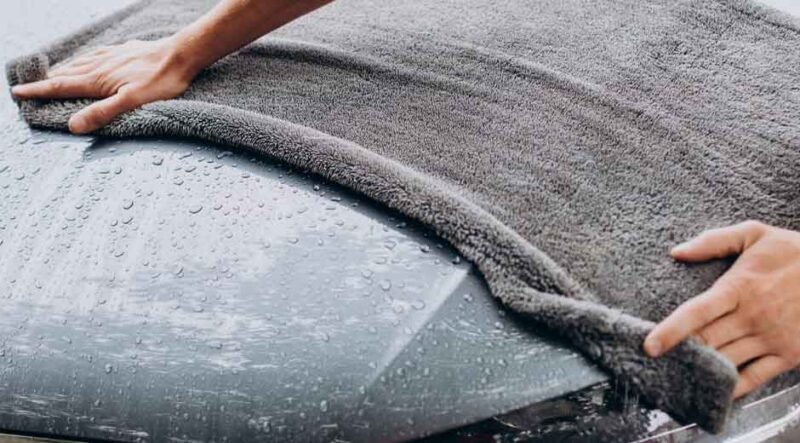
To achieve high-quality results, detailers rely on towels designed for frequent polishing and cleaning tasks. Washing, drying, and polishing vehicle towels helps protect surfaces by reducing abrasion and giving a clean, streak-free appearance. Having a clear idea of the features that define reliable towels enables professionals to perform consistent and accurate detailing. Here are the elements to look into when selecting car wash towels:
Evaluating Material Quality
Car wash towels are made from microfiber or cotton fibers. They are selected based on their material characteristics. Microfiber towels are made from a blend of polyamide and polyester. Polyester provides towels with structural strength and a texture that facilitates scrubbing, while polyamide offers finer and more elastic fibers that enhance liquid absorption by drawing moisture into the fabric.
Terrycloth and huck weave towels are naturally soft and have high moisture retention. Factors such as weave density, fiber fineness, and fabric weight significantly impact the quality of the towel. These factors affect the towel’s cleaning performance and water retention ability.
Assessing Absorbency and Performance
High-density towels with a soft texture effectively absorb water, making them suitable for tasks that involve drying. This is because they soak up liquids without leaving streaks. Thinner or low-density towels polish and wipe better in tasks that involve minimal water. Choosing towels based on their absorbency features can help protect the vehicle’s surface.
Identifying Maintenance Needs
Clean your car wash towels and abrasive fabrics separately to prevent damage to fibers and improve their longevity. Bleach and fabric softeners coat the fibers on your towels, affecting their ability to soak and retain liquids. Using mild detergents designed for microfiber material can help to maintain the towels’ softness and cleanliness.
Huck towels are naturally soft and absorbent. They often improve with repeated use because their fibers become looser over time. Regularly inspect your towels for signs of fraying and lint shedding. Lint can scratch the vehicle surface and reduce the towel’s cleaning effectiveness. Air dry or use low heat to preserve the fiber structure and prevent shrinkage.
Color-code your car wash towels according to their intended uses. Using black for engines, green for waxing, and yellow for interiors can help minimize the risk of transferring dirt or chemicals. This color-coding practice makes sure that towels are dedicated to specific tasks, reducing cross-contamination.
Selecting the Right Quantity
A professional environment using an organized towel handling system can track its towel usage and replacement. Adequate stocking helps the business avoid running out, especially during peak working hours. Setting up an inventory management system that maintains a continuous record of towel conditions prevents shortages. The management system should include procedures for cleaning, drying, and storage to promote availability and preserve towel quality. Establishing designated towel pickup and distribution areas within the business minimizes towel loss and streamlines workflow.
Buy Quality Car Wash Towels
Absorbency, durability, and precision all impact the performance of the towels. To protect the vehicle finishes and enhance operational efficiency, detailers choose the right materials and maintain an organized system. Wholesale suppliers provide quality microfiber and cotton towels designed for all detailing stages. For car detailers buying towels in bulk, professional suppliers can help streamline service delivery. Search for a reliable car wash towel supplier in your area today.

